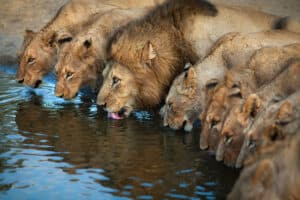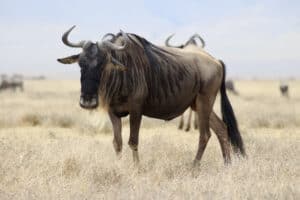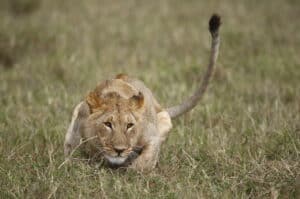Not only is the lion the king of the jungle and one of the most popular animals alive, it is also the inspiration behind many beloved movies such as The Lion King. Lions are the second-largest of the big cats, being smaller than tigers. However, just like many of their animal subjects, lions also need to excrete waste to survive. Here is everything you’ve ever wanted to know about lion poop.
Lions: The Kings of The Jungle
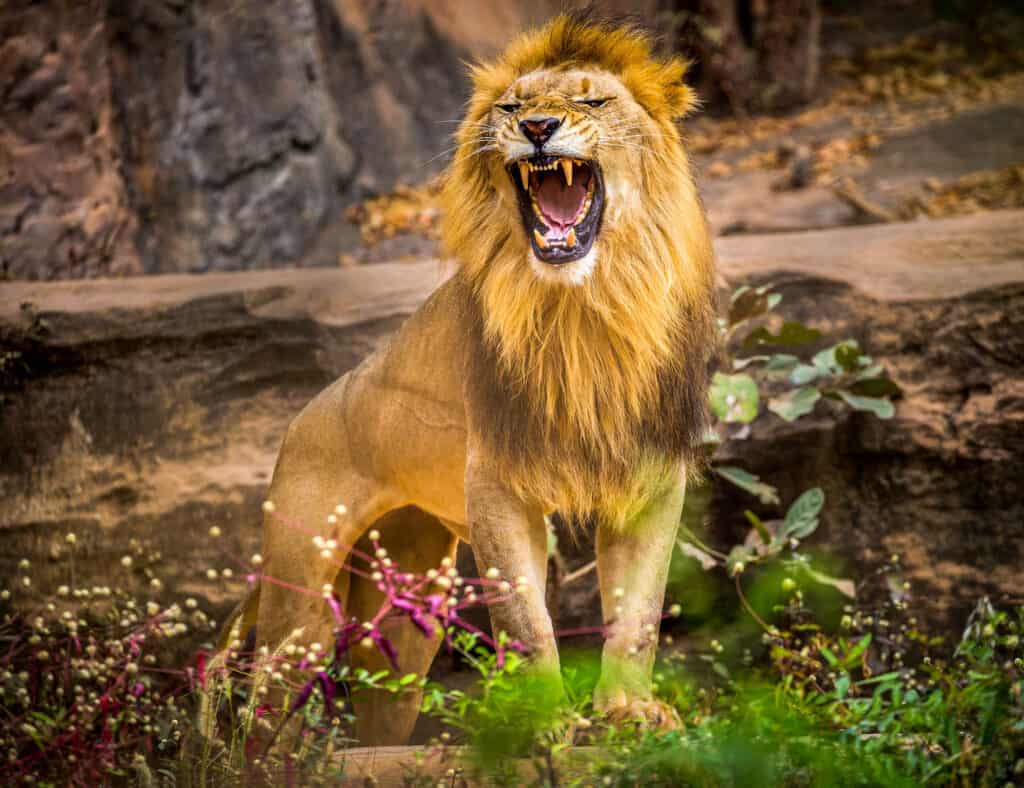
Lions have a bite force of 650 PSI, which is about 4 times the force of humans’.
©iStock.com/undefined undefined
Lions are apex predators at the top of their food chain. They are called kings of the jungle because they dominate their surroundings and not necessarily because they are the strongest animal. Elephants, for example, are stronger than these fierce mammals. However, pride members still team up to take elephants on, despite their size and strength. Lions are also the only big cats known to live in social groups of up to 30.
These animals have an estimated bite force of 650 PSI, about 4 times the force of humans’ maximum of 174 PSI. Although other animals, such as great white sharks, have higher bite forces of up to 4,000 PSI, few animals can match the sheer rage and strength lions exude. When a lion roars, it can be heard for 5 miles. There’s more to this roar, too. Not only does it warn off intruders, but it is also a show of power and dominance.
These vicious cats can deliver 400-pound kicks, making them one of the strongest animals that currently exist. However, lions also have more in common with house cats than you think. They socially groom themselves and sleep for long periods- sometimes up to 16 to 20 hours. Lions also have the same papillae that cats have on their tongues, making their licks feel prickly. However, lions’ are stronger and can scrape flesh off.
What Do Lions Eat?
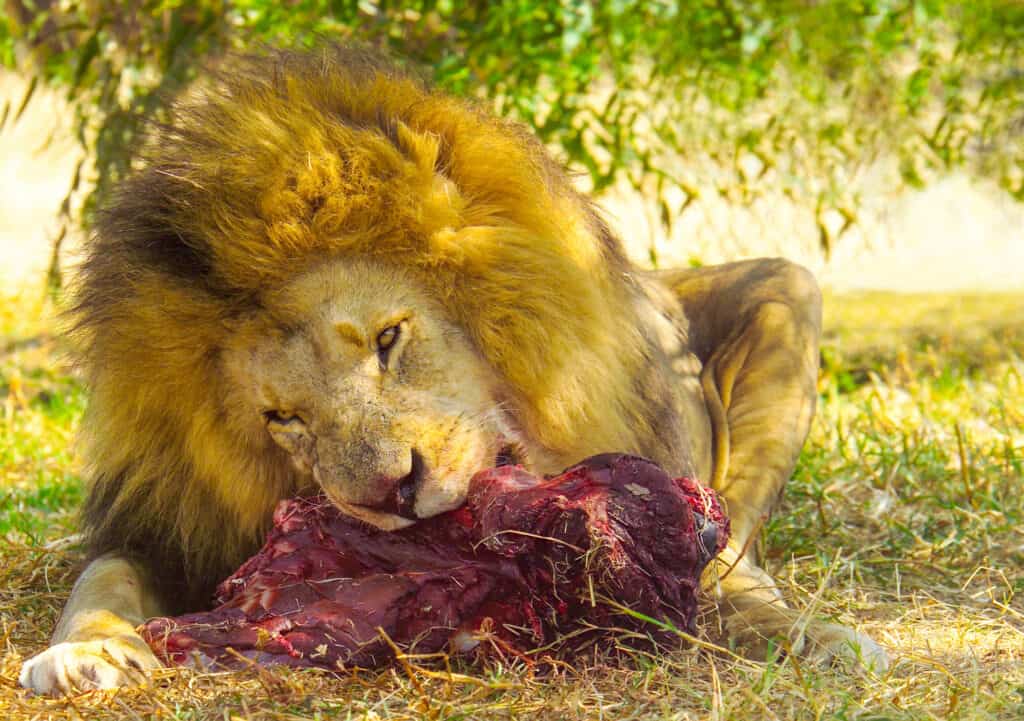
Lions are carnivorous animals that eat flesh and meat of all types.
©iStock.com/diane39
Lions are carnivorous animals that eat flesh and meat of all types. They hunt down medium-sized and large animals of various species. Some common prey of lions are cheetahs, elephants, giraffes, wild hogs, rabbits, rodents, and even rhinoceroses. Lions may hunt alone or in pride but usually team up for larger animals. They also drink water from streams and other freshwater bodies they can find. In fact, when available, they drink water more frequently than they eat.
What Does Lion Poop Look Like?
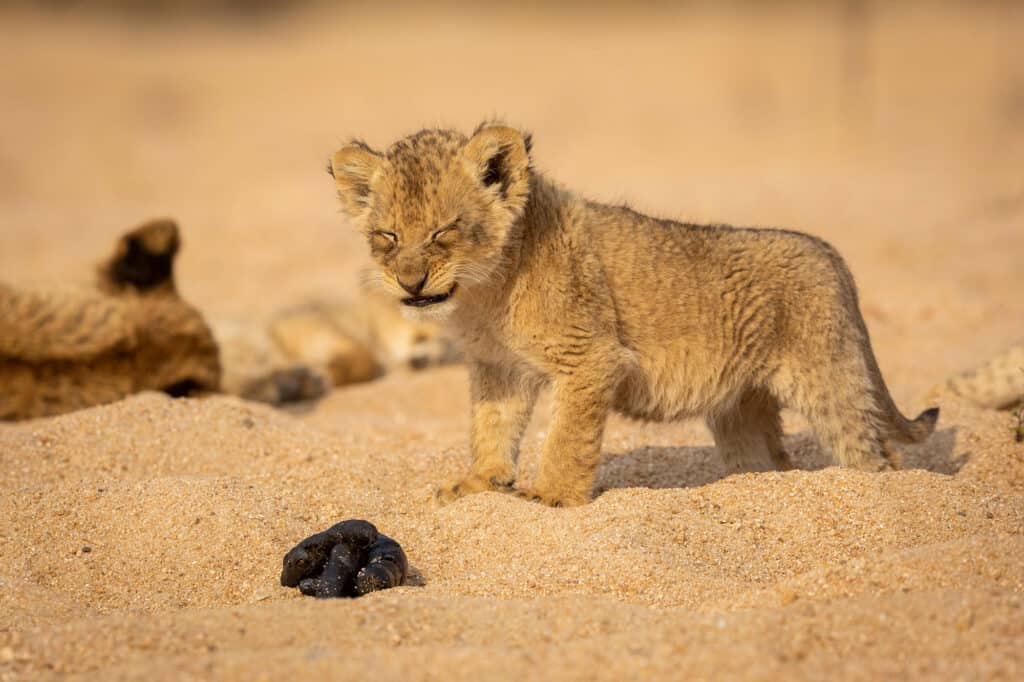
Lion poop is large and is a mixture of solid matter, runny matter, fur, bones, and whitish residue.
©Stu Porter/Shutterstock.com
Lion poop is just as large as one would expect it to be but has a number of things mixed in. It is made of mostly solid matter and may have whitish residue mixed with the solid parts. The whitish residue is calcium which indicates the health of the animal.
Lion poop also has a lot of bones and fur, which come from the animal it made a recent meal of. The runny or watery parts of the lion’s poop are from the blood and muscles in the animal it ate. Lion poop is easier to differentiate from other animals’ because of its size and the visible differences in the dung.
Do Lions Eat Their Own Poop?
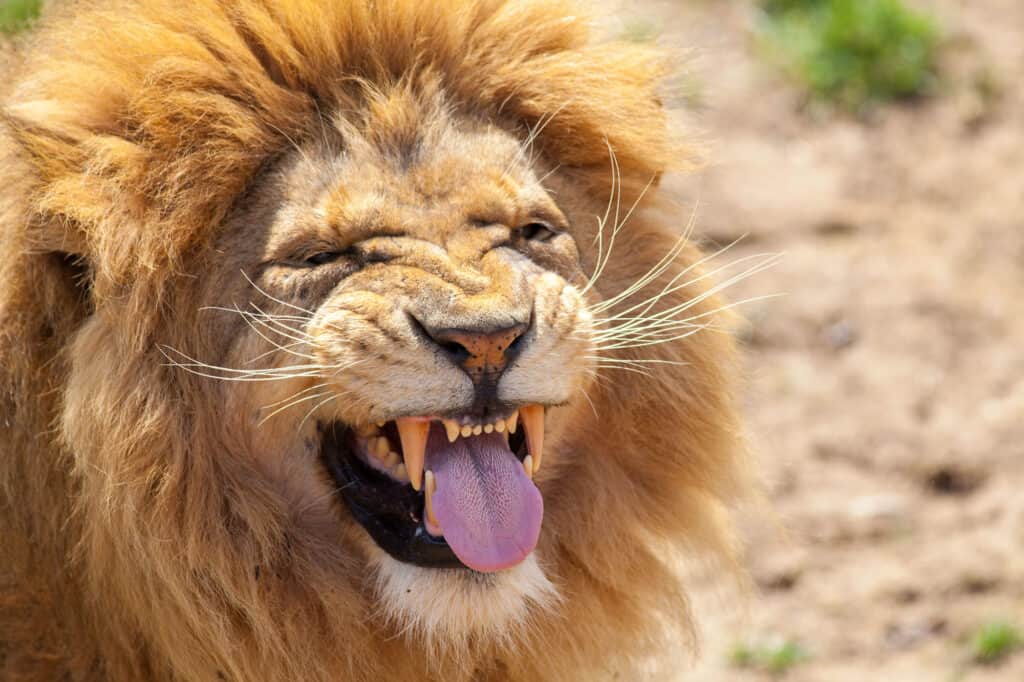
Lions have not been documented eating their own poop.
©iStock.com/Ian Dyball
Although lions haven’t been documented eating their own poop, there is a possibility that they do because they eat other animals’ -such as buffalo– poop. Many animals eat their poop if they feel the nutrients were not well-digested.
Is Lion Poop Toxic To Humans?
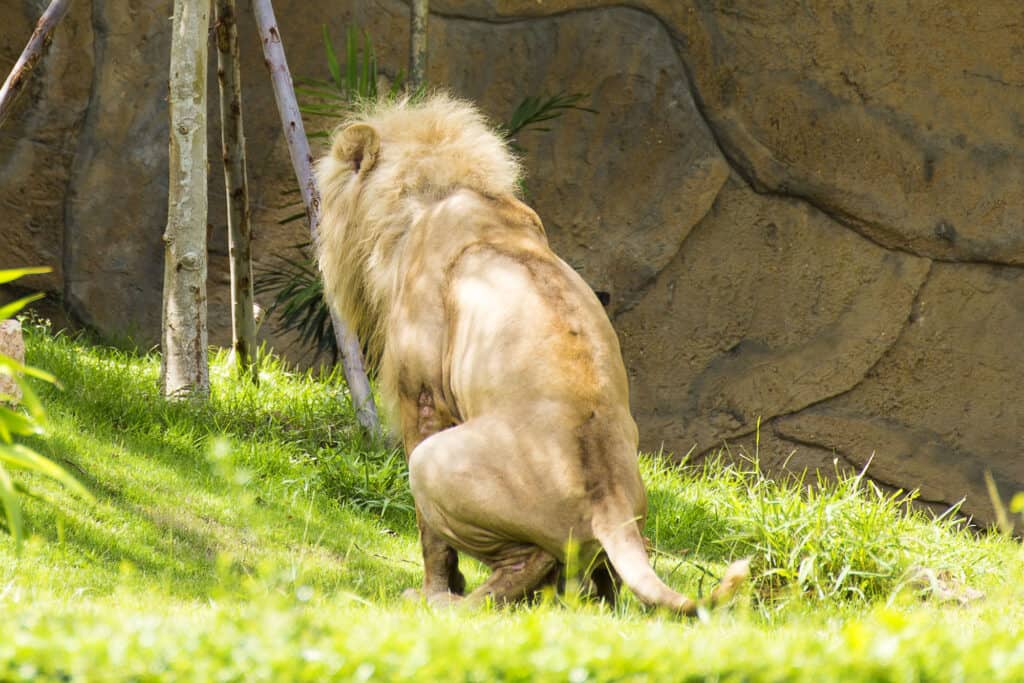
Lion poop could be dangerous to humans.
©Biggy TLC/Shutterstock.com
Because lions feed on other animals, their poop definitely contains bacteria that could endanger humans. People who handle lion poop don’t touch it with their hands. They wear disposable gloves.
Is Lion Poop Important?
According to the Smithsonian Zoo, poop is one of the major ways that lion keepers use to monitor their health and meet their dietary needs. However, since zoos have multiple lions, it isn’t easy to tell what dung belongs to what lion. Consequently, zoo keepers often mix in edible glitter of varying colors with the lions’ meals. That way, they are able to match each dung pile to the right specimen by color.
Up Next:
These Lions Are Too Busy Bickering, So Their Dinner Gets Up And Walks Away
Blue Whale Poop: Everything You’ve Ever Wanted To Know
The photo featured at the top of this post is © Dennis W Donohue/Shutterstock.com
Sources
- Cambridge Core, Available here: https://www.cambridge.org/core/journals/journal-of-zoology/article/abs/prey-preferences-of-the-lion-panthera-leo/1EAA43C9627DD84E106DF679743A5E07
- British Ecological Society, Available here: https://besjournals.onlinelibrary.wiley.com/doi/full/10.1111/j.1365-2664.2011.01981.x
Thank you for reading! Have some feedback for us? Contact the AZ Animals editorial team.



